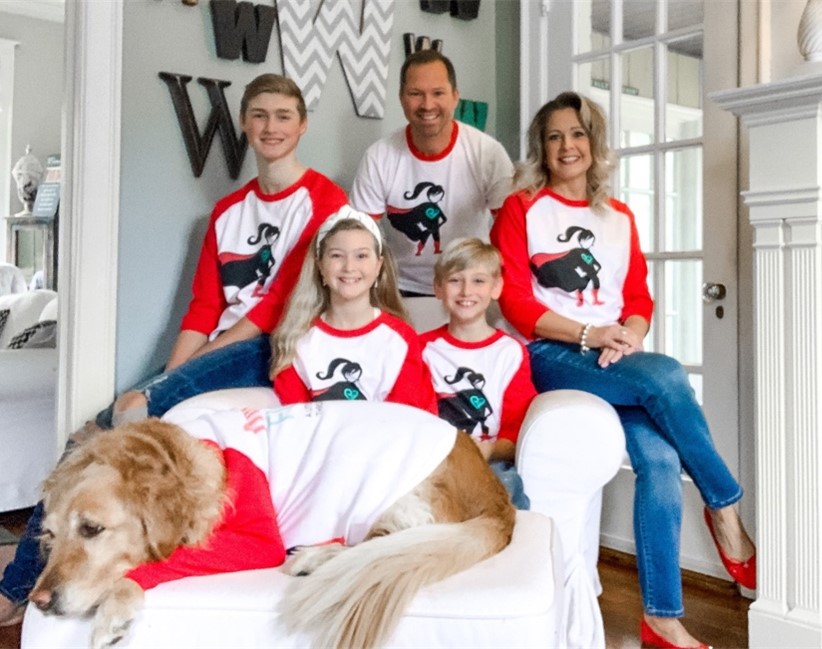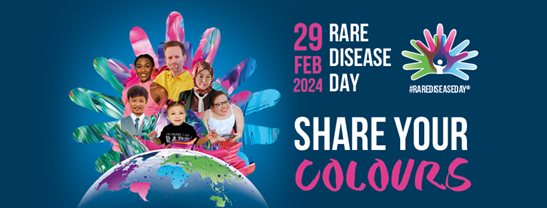FH Europe Foundation supports Rare Disease Day, observed annually on the final day of February. This year marks an extraordinary occurrence, as it falls on the rarest day, Thursday, February 29th.
FH Europe Foundation advocates for the two rare familial hyperlipidaemias, Homozygous Familial Hypercholesterolaemia (HoFH) and Familial Chylomicronaemia Syndrome (FCS) which share many commonalities with the 6000+ rare diseases currently identified. [1] FCS has a dedicated rare disease that falls on the first Friday in November, and this year we’re delighted to be announcing the very first dedicated HoFH awareness day on 4th May in which we’ll be raising awareness of the impact of HoFH on individuals and their families.
What is Rare Disease Day?
Rare Disease Day was created in 2008 by EURORDIS, the European Organisation for Rare Diseases and is coordinated by EURORDIS and its 65+ national alliance patient organisation partners. Over the years it has played a critical part in building an international rare disease community that is multi-disease, global, and diverse. It is united in its purpose to work towards equity in social opportunity, healthcare, and access to diagnosis and therapies for people living with a rare disease.

Did you know?
- An estimated 30 million people are living with rare diseases in the 48 countries in Europe. [1]
- Each rare disease affects less than 1 in 2,000 people. [1]
- Approximately 85% of rare diseases affect fewer than one individual in a million or fewer than 500 people in the European Union. [3]
- 75% of rare diseases affect children. [1]
- 70% of rare diseases have their onset during childhood. [1]
- 72% of rare diseases are of genetic origin. [1]
- 28% of rare diseases are of non-genetic origin (these include rare cancers, rare infections, immune deficiencies, and health hazards). [1]
- 5 years on average is the time it takes for a rare disease patient to get a diagnosis. [2]
- 70% of people with rare diseases wait more than 1 year to get a confirmed diagnosis after coming to medical attention. [2]
- 7 in 10 people live with rare diseases and family carers reduce or stop professional activity due to their or their family member’s rare disease.[4]
- There are over 230 orphan medicines authorized in the EU. The goal is to support the development of 1,000 new therapies for rare diseases by 2030.[5]
- Only 1,200 out of all rare diseases have more than five documented cases published in the scientific literature. [4]
- Two-thirds of family carers spend more than 2 hours a day on disease-related tasks. [4]
- The proportion of people with rare diseases who report feeling depressed is 3 times higher than that of the general population. [4]

The Watts Family - daughter Avery Watts was diagnosed with HoFH when she was 6.
Issues that affect all people with a rare disease
- The lack of scientific knowledge and quality information on the disease often leads to delays in diagnosis.
- The need for appropriate, quality healthcare contributes to inequalities and difficulties in accessing treatment and care. This often results in significant social and financial burdens on patients.
- Due to the wide diversity of disorders and relatively common symptoms that can mask underlying rare diseases, initial misdiagnosis is common. Moreover, symptoms not only vary from one disease to another but also among patients suffering from the same disease.
- Research should be international to ensure that experts, researchers, and clinicians are interconnected.
- There is a substantial emotional, mental, physical, social, and economic burden caused by the condition.
Follow our social media campaign – share with your networks tagging @FHEF and @EURORDIS with the following statement:
I support #HoFH and #FCS this #RareDiseaseDay
- Social Media campaign Starting February 1st
- Announcement of the first annual HoFH Awareness Day – 4th May 2024
- Europe Rare Disease Summit hosted by Bamberg Health Feb 14th, speakers include Magdalena Daccord (CEO) and Jill Prawer (Rare Diseases Project Manager)
- A dedicated webinar on March 7th: Make it or Break it: Communication in Rare Diseases (register here)
- Share your events with us
Other activities you can get involved in can be found on the dedicated Rare Disease page of EURORDIS.
Sources and References
- https://www.eurordis.org/information-support/what-is-a-rare-disease/
- Rare Barometer Diagnosis Survey. Available soon
- Nguengang Wakap, S., Lambert, D.M., Olry, A. et al. Estimating cumulative point prevalence of rare diseases: analysis of the Orphanet database. Eur J Hum Genet 28, 165–173 (2020).
- Juggling care and daily life: the balancing act of the rare disease community
- https://irdirc.org/resources-2/rd-metrics/ and EURORDIS therapeutic reports[5] (2020) Estimating cumulative point prevalence of rare diseases: analysis of the Orphanet database, European Journal of Human Genetics: https://www.nature.com/articles/s41431-019-0508-0


